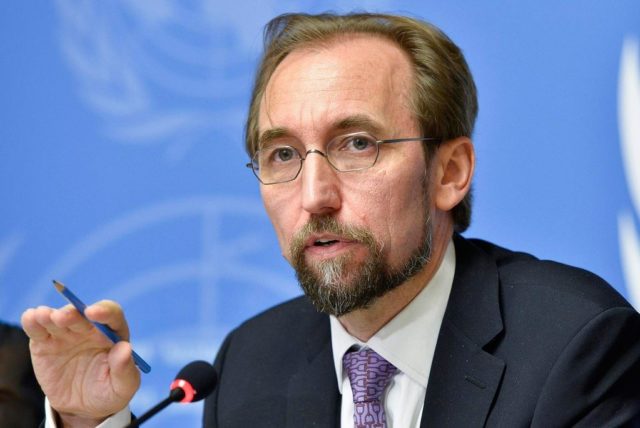ADDIS ABABA – Ethiopia should rein in a controversial anti-terrorism law and release prisoners, the UN human rights chief said Thursday during a visit to Addis Ababa.
The visit by Zeid Ra’ad Al Hussein, the UN high commissioner for human rights, comes after Ethiopia’s parliament in March extended by four months a state of emergency it declared after anti-government protesters took to the streets nationwide last year.
The government of Prime Minister Hailemariam Desalegn has faced international pressure for cracking down on dissent and jailing journalists since taking power in 2012.
A key complaint is the domination of the ruling Ethiopian People’s Revolutionary Democratic Front (EPRDF), in power since 1991, and which holds all 546 seats in parliament.
The protesters often targeted foreign farms and businesses, especially in the Oromia region close to the capital where the unrest began in November 2015.
Hailemariam told the BBC last month that he would not allow independent investigations into the unrest, and although Zeid was invited by the government, he was not allowed to visit parts of the country where protests took place.
At a press conference, Zeid said he was concerned about the mass arrests last year during protests driven by discontent among the country’s two largest ethnic groups, which left hundreds dead.
“The extremely large number of arrests, over 26,000, suggests it is unlikely that the rule of law guarantees have been observed in every case,” Zeid said.
“I am requesting the government to consider, if possible, the release of a number of individuals whose arrest or conviction appears to have been motivated by fear of criticism rather than evidence of intent to spark violent overthrow,” he said.
He did not identify specific individuals he was hoping to see released.
While praising a new human rights blueprint unveiled by the government last month, Zeid questioned prosecutors’ use of an anti-terror law to bring charges against bloggers and opposition activists.
“As I have said in many countries, if the fight against terrorism is misused as a pretext to attack perceived dissent, this only feeds grievances and will weaken the state,” Zeid said.
/AFP/
























